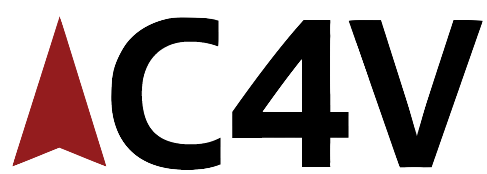An unseemly rush for legacy at USAID

The clock is about to strike midnight on the Trump administration’s federal grip on American governance, including at the U.S. Agency for International Development (USAID). Mid-December following the election of a new administration is typically a time of transition for all federal agencies and departments, where the priority shifts to getting papers and briefing notes in order and facilitating an orderly transfer of control. In any normal transition, by any reasonable political appointee team, this certainly would not be a time for announcing sweeping new initiatives or for making significant policy changes.
Providing another reminder that this political transition is neither orderly nor normal, another norm of governance was scuttled late on Friday, December 11th. Trump’s USAID political appointee team just started the requisite public engagement process for the launch of a new USAID policy. Specifically, USAID issued a formal request for public comments on its proposed replacement of the 2012 Counter-Trafficking in Persons (C-TIP) Policy. Responses are due by December 18th, giving the public just one week to review, deliberate, and respond.
What’s the rush?
In principle, updating an 8-year-old policy would not be out of line nor unusual, except with just over a month until the new administration takes over, this new policy launch feels ill-timed and rushed. A better policy launch would allow at least another week of public review (and it would not take place in a Holiday season in the midst of a pandemic). It would also do more to clarify the policy landscape, improve the policy’s effectiveness and ethical premises, and bring together the key actors.
I was serving at USAID as a Senior Advisor – a political appointee under the Obama administration – when the current Counter-Trafficking in Persons (C-TIP) Policy was formulated. Indeed, as a public policy specialist who focused on international development ethics and human rights, I welcomed the opportunity to be one of those who reviewed this draft document, and to offer edits where appropriate. In moral terms, there are few challenges as egregious as human trafficking – a practice that tears apart the lives or vulnerable women, children, and men. It particularly victimizes the poor, people from marginalized groups, and others whom society chooses to ignore. Trafficking happens in the shadows, where social safety nets are either weak or nonexistent, where laws are flimsy or unenforced, and where certain pernicious cultural values run counter to any plausible concept of universal human dignity. Those who are trafficked as child laborers or as sex workers clearly are not respected as dignified, worthy human beings.
The existence of human trafficking is not “news”. Twenty years ago, the Trafficking Victims Protection Act (TVPA) tasked USAID (as one of twenty federal departments and agencies) to implement C-TIP activities. Over the years, many USAID country Missions as well as USAID/Washington have sought to implement C-TIP activities and to adhere to TVPA rules, especially those associated with the State Department’s Trafficking in Persons Report’s Tier Ranking System. Using the information in that annual TIP report, that system classifies countries into tiers based on each specific government’s measurable efforts to comply with the TVPA “minimum standards for the elimination of trafficking.” If a country fails to meet such standards, it is supposed to be designed as a Tier 2 Watch List country (where it receives a warning to improve its C-TIP efforts or face U.S. foreign aid restrictions) or Tier 3 countries – the lowest level – where such restrictions are supposed to be imposed on nonhumanitarian and non-lifesaving foreign assistance funding (although the definition of what is included in those categories has yet to be entirely settled). The Trump administration, and particularly Ivanka Trump, did show welcome leadership in pushing to enforce foreign assistance funding restrictions to Tier 3 countries, in a break from what had become a widespread practice of issuing waivers whenever other diplomatic priorities took precedence over concerns about human trafficking. That relegation of trafficking concerns to lower priority status through issuance of waivers raises profound moral and ethical concerns that have not been well examined, and this system would be more credible were the U.S. itself to adhere to its own standards. In the 2020 Trafficking in Persons (TIP) Report, which was the 10th year that the U.S. government ranked itself, the U.S. placed itself in the highest category – Tier 1. Some leading civil society organizations, such as the Alliance to End Slavery & Trafficking, object to the U.S. awarding itself a Tier 1 status, noting that trafficking prosecutions in the U.S. have decreased for the past two years, as have the number of convictions. There has also been a drop off in the level of protection efforts offered to trafficking victims and survivors in this country.
Despite these legislative and regulatory initiatives, the scale of human trafficking remains far worse than most people can imagine, since trafficking thrives in the chaos of conflict, migration, and poverty. In such environments there is no one to collect data on trafficking, and local officials often simply choose not to act to stop this practice – or they are induced to ignore it. Relative to its scale and the damage, trauma, and violence that trafficking causes, prosecutions are disturbingly few and feeble. The message is clear: marginalized people do not really matter. It is also clear that there is an immense amount of money to made by this horrific trade in human beings.
The 2012 C-TIP policy made an earnest effort to harness the vast global presence of USAID and its deep connections with the U.S. State Department (State J/TIP) and other aid and relief agencies around the world, so that USAID could become a catalyst for genuine, measurable efforts – internationally, nationally, and locally – to reign in this abhorrent practice. USAID has learned a lot since 2012 and were a new policy to emerge that genuinely improved on the 2012 version, there might be more justification for a late attempt to update policy standards. To be fair, this new draft policy does contain many valuable updates; however, it still feels like it is being rushed out the “legacy” door. It would be so much better to include the current work on updating C-TIP as a high priority transition item, and an opportunity for the new team to complete this work.
Still, the die is cast, and the Trump political team at USAID want our comments. In response, I offer some specific areas where policy drafting work ought to continue:
- The new policy moves us no closer to a coordinated, whole-of-government response to trafficking, and it does nothing to build effective strategic partnerships with the United Nations, nor to foster stronger alignment between the other hub of C-TIP coordination taking place between the Department of Labor and the International Labor Organization (ILO).
- The draft policy does provide definitions of trafficking in persons, but it fails to address how best to achieve the essential but missing global consensus on how child labor, forced labor, and trafficking are understood or defined, impairing movement toward achieving the prevention of trafficking and a meaningful response to trafficking. While bureaucrats in countries around the world squabble over definitions, the suffering will continue.
- As with the earlier draft replacement to the Gender Equality and Women’s Empowerment Policy, the Trump team at USAID seems intent on making certain classes of marginalized persons simply disappear, or appear in passing. Men and boys as victims of sexual trafficking are not adequately addressed by this new draft policy, despite our clear knowledge of continuing cultural practices that support such abuses. Attention to the LGBTQ+ community in this draft policy is sketchy and thin.
- The Guiding Principle in this draft policy on Advance High Ethical Standards does not describe how gender and sexual minorities are at unique risk based on their sexual orientation, real or perceived gender identity or gender expression, and/or sex characteristics (SOGIESC). The lack of family support networks for many members of the LGBTQ+ community may potentially make some within this demographic particularly vulnerable to being trafficked, as many LGBTQ+ persons are ejected from their home once they come out. Life on the streets makes them easy targets for traffickers. The policy does not reference countries that have cited trafficking vulnerabilities for LGBTQ+ persons based on SOGIESC.
- The U.S. government does have a view on sex work, and it recognizes that an international consensus is lacking on the efficacy and moral justifications of criminalizing and prosecuting all forms of sex work. It is clear however that some transgender people, men who have sex with men (MSM), and gay men “choose” (without assigning moral values on that decision) to participate in (commercial) sex work as their economic survival strategy, while others are coerced into this practice due to trafficking. USAID’s draft policy avoids addressing this problem, although the draft policy’s section “Enhanced Technical Support and Coordination to Combat TIP” would be stronger if the human rights of sex workers were explicitly referenced within the context of survivor leadership in the design and implementation of policies and programs. Were this to be done, it would better reflect the views of individuals and organizations that advocate for the human rights of sex workers, while mitigating any conflation between sex trafficking and all forms of sex work.
In short, there remains work to be done on this new draft C-TIP policy. The attempt by the current Trump team at USAID to embed its legacy through last-minute, public review time-constrained tactics (as it attempted to do in public review of the earlier proposed replacement for the Gender Equality and Women’s Empowerment Policy) is unwise. So too is ignoring the internal review comments by the professional civil servants and Foreign Service Officers at USAID, which were not incorporated in the version shared to the public.
There are also bigger issues at stake beyond USAID’s current remit that ought to be addressed and resolved before a new draft C-TIP policy is launched. The Biden-Harris administration might choose to strengthen USAID’s overall coordination role among the relevant twenty federal agencies and departments who currently have influence in addressing aspects of human trafficking. Ideally, this would entail a reform of USAID’s role within the President’s Interagency Task Force to Monitor and Combat Trafficking in Persons (PITF) as that body works to strengthen a whole-of-government approach to human trafficking. This is especially the case in international engagement and diplomacy, and in the functioning of the Senior Policy Operating Group (SPOG) and its five standing committees. At present, USAID only co-chairs the SPOG Grantmaking committee; it should play a much more significant coordination role.
Rushing an incomplete policy through a shortened approval process is both irresponsible and detrimental to the interests of the intended beneficiaries, raising distinct moral and ethical concerns. By the time the dust settles, those who ought to be held accountable for this poorly conceived process will be gone from USAID.
Who gets to pick up the pieces?
Note: Time is of the essence. Please add your comments on this new draft policy on the designated USAID website.


